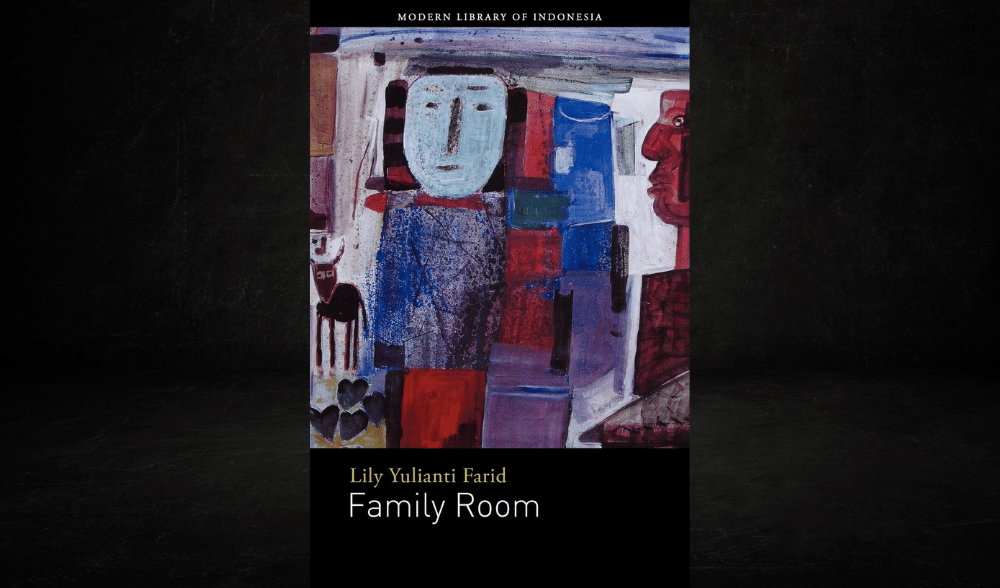GABY RUSLI WRITES (in an on-going series of reviews of Indonesian classics) — A grandfather who seeks to marry off his granddaughters to his wealthy friends for connections. A young, successful model who suffered the consequences of her early success. A Chinese-Indonesian family was left with the scars and traumas of the ‘98 Anti-Chinese riots. The unbreakable connection between a woman and the family servant that raised her when her mother denies her existence. Family Room (2010) by Lily Yulianti Farid is a stunning composition of fifteen stories centered around the living rooms of people of different backgrounds, beliefs, and social standings. Through these vignettes, Farid paints the varied and complex challenges of family life while also touching on politics and the female role in a highly patriarchal Indonesian society.

Lily Yulianti Farid is a writer and activist born and raised in Makassar, Indonesia (your reviewer’s hometown). Farid started writing as a journalist for the well-known publication Kompas from 1996 until 2000 before pursuing higher education. Farid graduated from the local Hasanuddin University before achieving a master’s degree in Gender and Development and a Ph.D. in Gender and Media from the University of Melbourne. She wrote several short stories focusing primarily on issues from the feminine perspective.
Family Room pays due homage to the under-appreciated modern women writers of Indonesia. However, Farid’s tone does not simply lament or passively criticizes the state of Indonesia. Instead, she shines a knowingly harsh spotlight onto the realities that many women face, especially in the smaller and more traditional parts of Indonesia, such as in her hometown of Makassar, where a majority of women are expected to conform to conventional gender roles. By spotlighting such issues, Farid is not only validating these women but is also creating a larger sense of Indonesian community and commonality, one that applies to a far grander audience and allows for a cultural exchange of near-existential experience.
But what makes Family Room stand apart is its challenge to the traditional “nuclear family” concept, pointing to the many shapes and faces that real families can embody. The book discusses conflicts without attempting to alleviate their difficult and wearying aspects: This is so different from typical Indonesian novels, which often romanticize familial trauma that could possibly send the wrong message to Indonesian readers, a demographic dominated by young adults. The short stories share a common theme: feminized spaces become an alter where one can witness pain and torment caused by male-centric politics and the consequences of the patriarchy.
A most worthy read, Lily Yulianti Farid’s Family Room has earned her yet another enthusiastic admirer: From my perspective alone, Farid’s work suggests that you won’t find what you love unless you open yourself up to trying new things. Tradition is important, but it is not the only determiner in life.

New Book Reviewer, Gaby Rusli, is an International Relations graduate and environmentalist who is passionate about Indonesian and Southeast Asian political affairs. Email:
Edited by book review editor-in-chief, Ella Kelleher.


One Reply to “BOOK REVIEW: FAMILY ROOM (2010) BY LILY YULIANTI FARID — THE MANY FACES OF A FAMILY UNRAVELED”